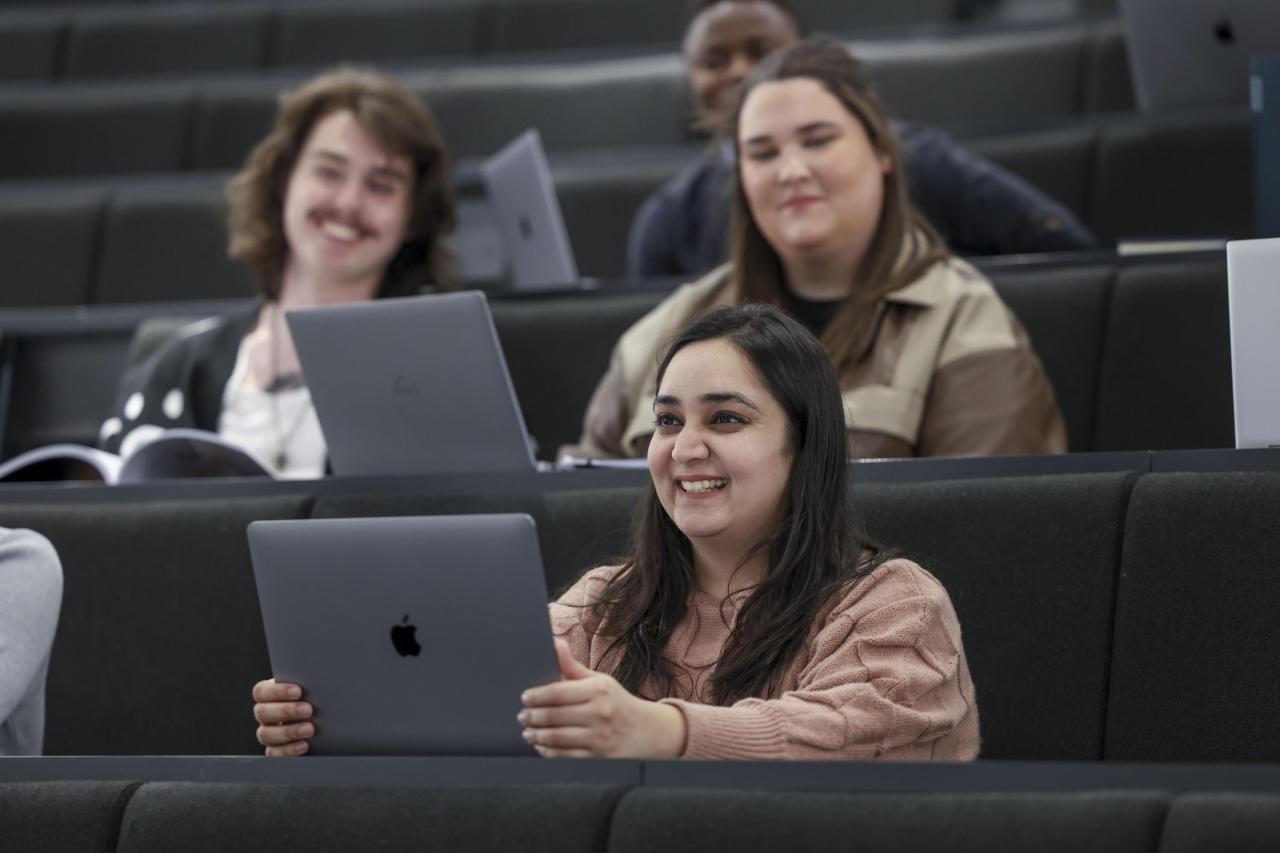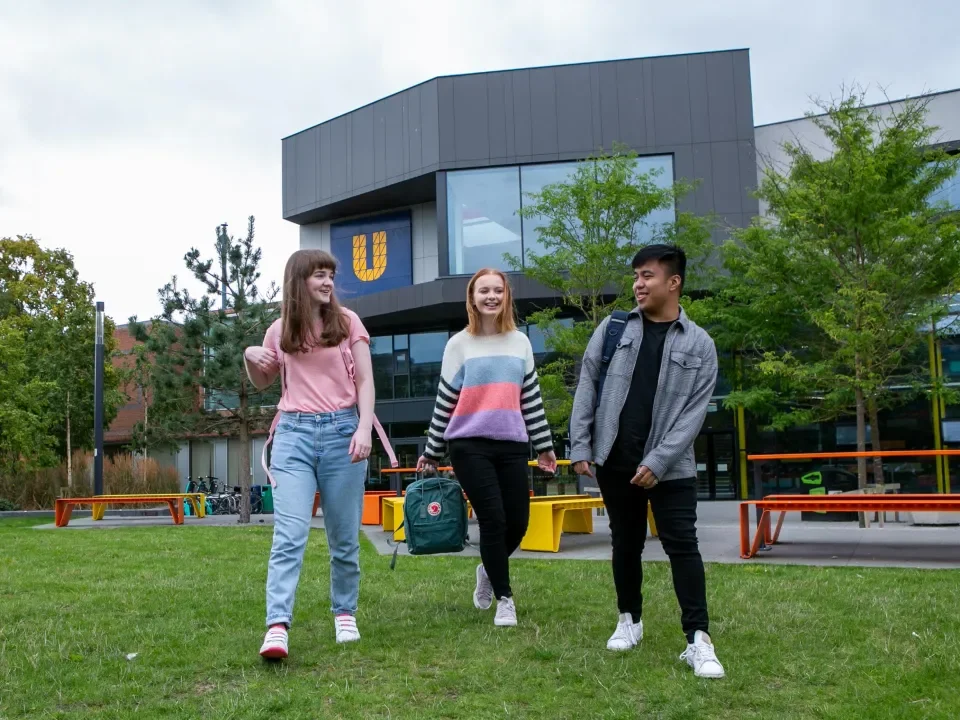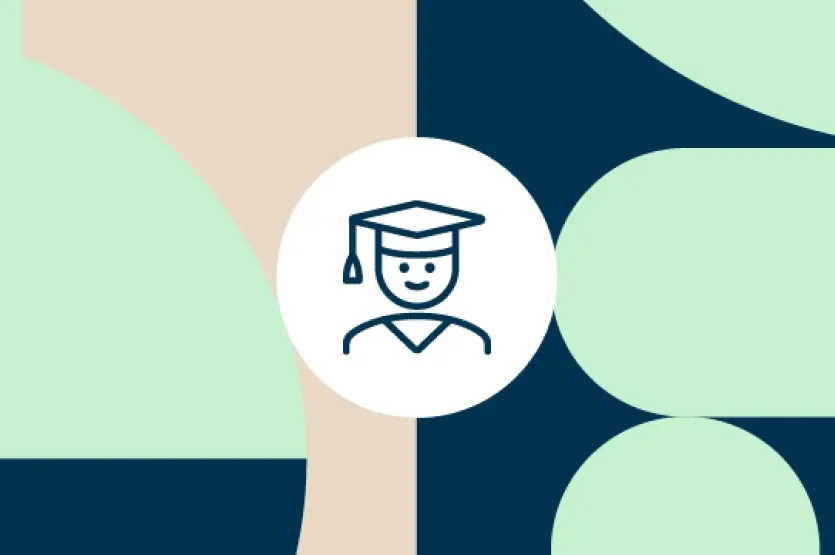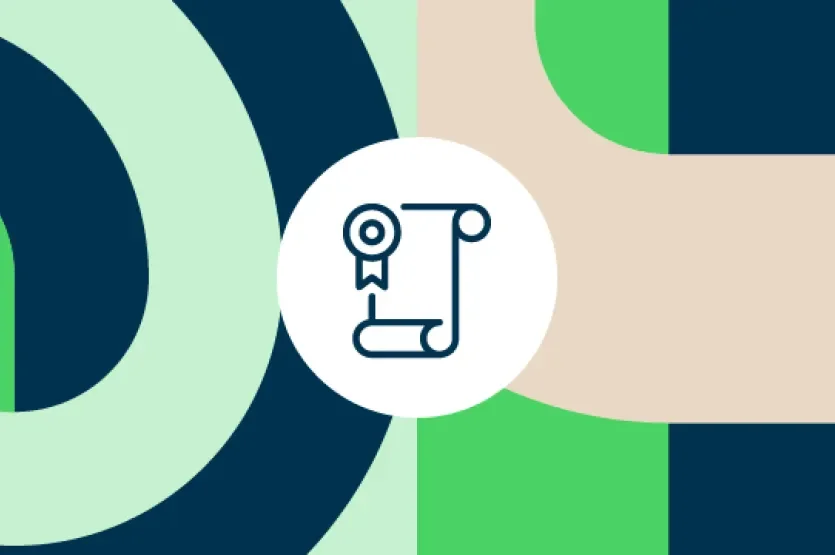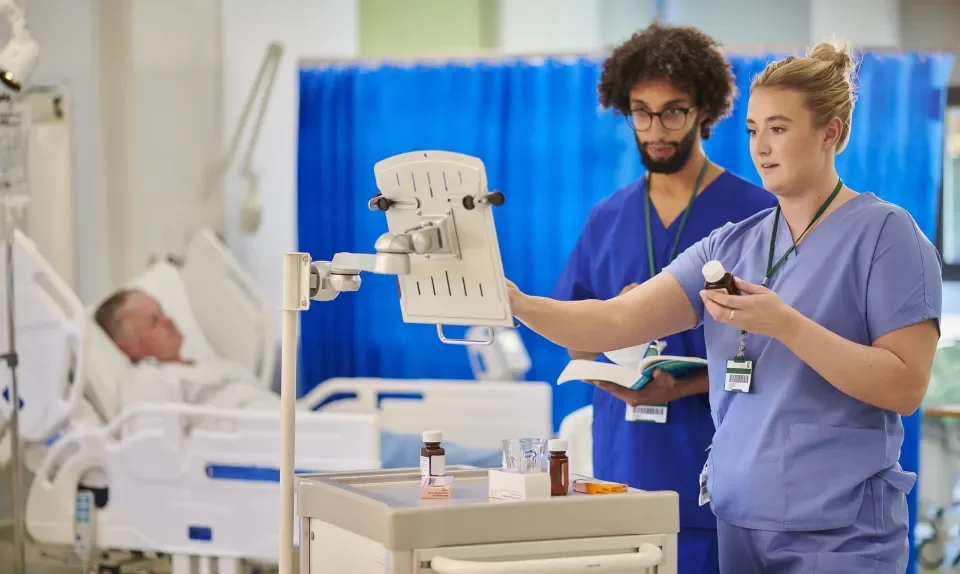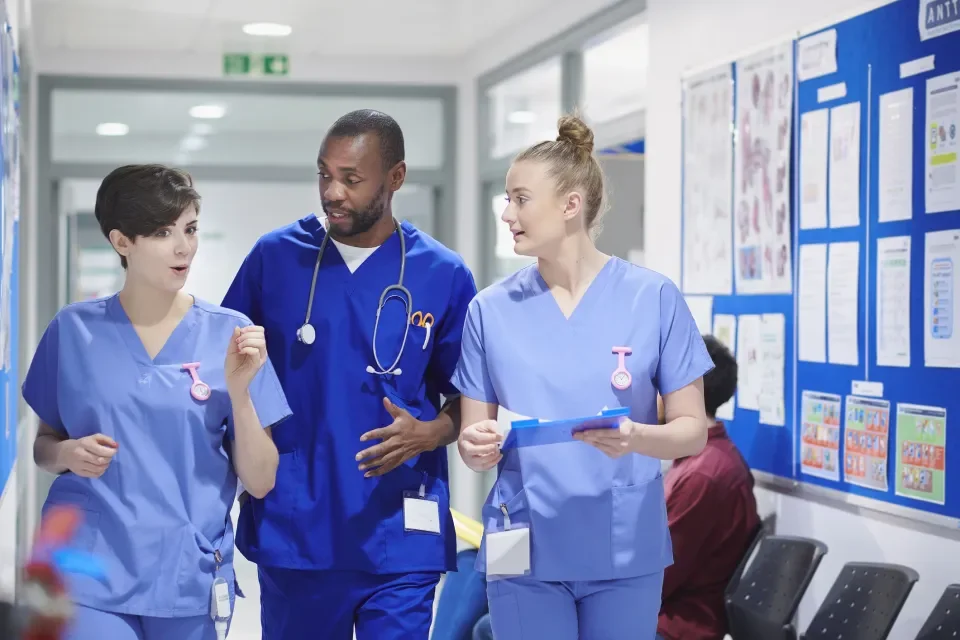Overview
This course has been designed to enable you to discover all the aspects of health issues, and learn how to understand, research and act to improve the health of populations.
During the course, you’ll encounter many different ways of thinking about and acting on health issues, including biological, social, political, ethical and psychological perspectives. You’ll not only learn about different potential career paths, but you’ll also get to focus many projects and other programme activities on your own health interests.
As a Health and Society student, you’ll participate in a voluntary community project in your first year, then go on to design and implement a health equity campaign in second year. In your final year, you’ll complete a health research project and write your final dissertation.
Once you’ve completed the programme, you could go on to work in a state or voluntary health or social agency, or go to work in overseas development. Many of our graduates apply to go directly into further study, such as a postgraduate programme in occupational therapy, speech and language therapy, health promotion, social research and a wide range of other areas.
Why DCU
DCU People
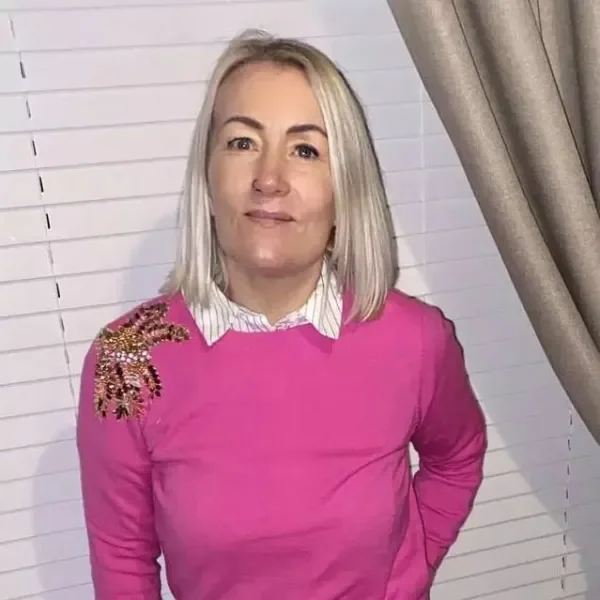
I’ve always had a strong sense of social justice, which is probably why the degree in Health and Society stood out to me.
Read more about Jennifer O’Brien
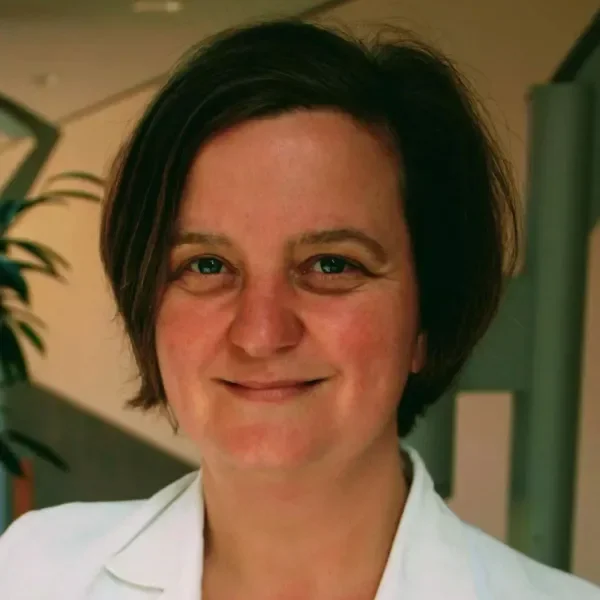
After working in Malawi, I returned to Ireland 21 years ago and have been working in DCU since then. I love my job!
Read more about Anne Matthews
Careers & Further Options
Careers
As a DCU Health and Society graduate, you will be well placed for a future career in a health-related profession or for work in overseas development, community development and the voluntary sector.
The degree also provides a good entry route to postgraduate study if you hope to pursue a career in an area like like speech therapy, occupational therapy, or medicine and health promotion. The BSc in Health and Society will provide a strong basis for this kind of further study. In addition, this degree is suitable for anyone who wishes to pursue roles in overseas development, community development and the voluntary sector.
- Community Development
- Further Education
- Healthcare
- Overseas Development
- Voluntary Sector
DCU graduates are highly sought after by employers. Our Graduates work in environments ranging from large multinationals to SMEs, family businesses and start-ups across every sector.
DCU Careers Service has a number of learning and development initiatives in place for our students, giving them the skills they need for a successful career path.
Entry Requirements
In addition to the general entry requirements for admission to the university the following entry requirements apply
Minimum of O6 or H7 in Mathematics and minimum of O6 or H7 in one of Physics, Chemistry, Biology, Physics with Chemistry or Agricultural Science
In addition to the general entry requirements for admission to the university the following entry requirements apply
GCE A Level D or GCE AS Level D or GCSE C Mathematics and GCE A Level D or GCE AS Level D or GCSE C in one of Physics, Chemistry, Biology, Physics with Chemistry or Agricultural Science
Please visit our Admissions webpage for details on course requirements or how to apply to DCU.
Please visit our QQI FET webpage for details on DCU courses, open days, campus tours or school visits.
To apply to DCU, please visit www.cao.ie.
Mature entry is a competitive process. Applicants must demonstrate:
- a genuine interest in the programme(s) they are applying for
- academic experience and competency in their chosen field of study
- an ability to engage and succeed on the programme
All applicants must complete a statement of interest to be considered for the mature application route.
For further guidance on the mature application process please see the CAO Website
Applicants that have completed at least one year of study at NFQ Level 6, 7 or 8 at another institution may apply to continue their studies on a similar programme at DCU. There should be substantial overlap in content between the two programmes to be considered for a transfer. Results and other supporting documentation must be submitted to CAO by the closing date of 1st July. This is a competitive application process for a small quota of advanced entry places. Offers are made on a rolling basis until all places are filled. Early application is advised. Please note: Applicants should also consider applying through the appropriate route for first year entry to the programme they are interested in. This application process is only for advanced entry.
International candidates are expected to have educational qualifications of a standard equivalent to those outlined above. In addition, where such candidates are non-native speakers of the English language they must satisfy the university of their competency in the English language. For further information on international applications click here.
Course Structure
- Perspectives on Health
- Sustainable Development and Health
- Reading Health Research
- Living Longer
- Public Health Nutrition
- Drugs in Society
- Critical Thinking and Health
- Biochemistry and Cell Biology
- Anatomy and Physiology
- Marginalisation and Health
- Child and Adolescent in Society
- Human Genetics and Cell Biology
- Campaigning for Health Equity
- Qualitative Health Research
- Quantitative Health Research
- Epidemiology
- Freedom and Health
- Sociology, Health and Illness
- Making Sense of Mental Health and Illness
- Biochemistry and Health
- Health Promotion
- Sexual Health
- Anthropology, Health and Illness
- Biological Basis of Disease
- Comparative Health Systems
- Challenging Global Health Problems
- Health & Society Research Project
- Infection and Immunity
- Clinical Nutrition
Fees and Funding
Fees
How To Apply
Applicants presenting EU School Leaving/FETAC Level 5 examinations: Apply through the Central Applications Office (CAO) by 1st February or 1st May
To apply for this programme:
Candidates should apply directly here. Here's a quick step by step guide if you need help with your application.
Please provide
- Academic Transcripts for each and every year of study with English translation, if applicable.
- If applicable, provide evidence of competence in the English language as per DCU entry requirements.
Applications are accepted on an ongoing basis up to 1st July. All Non-EU candidates are advised to apply early, as places are limited.
All mature applicants apply through the CAO by 1st February. For further information and for special application procedures for mature students, please click here
EU applications are made via the CAO Advanced Entry route which opens on the 5th of November until 1st July.
Please see Application Procedures or E-mail ugadmissions@dcu.ie.
Candidates submitting EU examination results are required to apply through the CAO at www.cao.ie.
Candidates submitting non-EU examination results are required to apply directly here.
Life On Campus
At DCU, our students can expect a unique campus experience. We are known for our excellent teaching and learning facilities, our active clubs and societies, and our great social and sporting facilities. All this makes DCU an exciting place to be.
DCU has three academic campuses; Glasnevin, St. Patrick’s and All Hallows (both in Drumcondra), all close to Dublin City centre.
They can be reached by public transport, Dublin Bus and Bus Éireann, with our Drumcondra campuses a ten minute walk from Drumcondra Train Station. Glasnevin is a 20 minute walk from St Patrick’s and All Hallows. They are also linked by Dublin Bus.
Each campus has a library (O’Reilly, Cregan and Woodlock Hall), study spaces, restaurants, and on-campus residencies. There are sports facilities on Glasnevin and St. Patrick’s, and there is a dedicated sports campus, St Claire’s, located near Glasnevin on the Ballymun Road.
DCU’s 19,000 students have access to exceptional teaching and learning facilities across our three academic campuses.
These include modern learning theatres, research centres, a new media and TV studio, radio/podcast studios, computer suites and advanced labs in the areas of Languages, Engineering, Physics, Chemistry and Biotechnology, as well as a Sports Performance centre and a training hospital ward. In 2021, we opened our first virtual reality ‘Leadership Lab’, which is located in our Business School.
We continue to improve and update our facilities. For example, construction of a new world-class STEM facility is underway on the Glasnevin campus. With capacity for an extra 3,000 STEM students, this facility will advance DCU’s international reputation for excellence in science and health, computing and engineering disciplines.
Studying in DCU isn’t just about course work. The university is rich in student life and activities.
There are more than 140 clubs and societies for students in DCU, with ‘Clubs & Socs’ days taking place on both the Glasnevin and Drumcondra campuses at the start of the academic year. They span everything from rugby to rock climbing, anime to jazz.
For many students, sport is an important part of the DCU experience. DCU’s Sports Complex boasts a 25 metre swimming pool, fitness centre gym, all-weather pitches and squash courts, as well as soccer, GAA and rugby pitches. DCU Dóchas Éireann, the university’s GAA club, is the largest third level Gaelic Games club in the country. Meanwhile, DCU Athletics has been Ireland’s highest achieving university club for many years. And DCU has dozens of other clubs to get involved in, from Archery to Weightlifting.
The Glasnevin campus is home to our purpose built, state-of-the-art student centre, The U, which serves the needs of a rapidly growing student body. Here, you will find the Student Leadership and Lifeskills Centre, performing arts and cultural spaces for students and the wider community, and the Entrepreneurship and Innovation Hub. Also located on our Glasnevin campus is The Helix, our renowned performing arts centre.
On our St Patrick’s campus, we have the Java Student Hub, a vibrant, warm and welcoming space where students can meet for coffee, play music, use the projector to watch events, or just relax. The walls of the Java Hub were designed based on the cultural history of St Patrick’s Campus, including the special references to the notable sporting history and history of the arts.
We have a number of academic, professional and social supports for students.
Student Advice & Learning Skills Centre - Offers a wide range of supports and services to students and advice
The Writing Centre - drop-in writing workshops for students through the academic year
Maths Learning Centre - provides maths support for students of all ability levels with maths modules
Student Learning - facilitate the transition from passive to active learning for students at DCU, by teaching study skills, nurturing critical thinking and building student confidence.
Careers work with students to help them on their professional journey into graduate employment.
Our student support team offers a comprehensive support programme, helping students make that all important transition into university life and focusing on building confidence and skills which are key to success at third level.

DCU Glasnevin Campus
FAQs
What postgraduate programmes can I go on to study after the BSc in health and society?
Some of our graduates have gone on and applied to and secured places in postgraduate Occupational Therapy (OT) programmes. Others have applied for and studied Speech and Language Therapy and Physiotherapy. Those postgraduate programme application processes are competitive and require certain grades (and maybe other conditions, which are subject to change). Many of our graduates have had to study these in the UK due to limited places in Ireland. Our Careers Office staff support our students to look at all the options.
Other graduates have studied Human Resource Management, Immunology, Global Health & Immunology, Audiology, Public Health, Healthcare Policy & Management and many other programmes in Ireland and overseas.
Can I study postgraduate dietetics after this programme?
Every postgraduate programme team and college set their own requirements and conditions. In general our programme does not have enough science (including laboratory-based work) for it be to an eligible programme for postgraduate dietetics, which is very competitive due to the limited number of places in Ireland and the UK. Some of our graduate have studies Dietetics, after some further study and course. It is advised to enquire with a Dietetics college about our programme.
What jobs can I get after completing the BSc in health and society?
Some of our graduates have gone on to work in voluntary and community agencies working with people who are marginalised or vulnerable. Others have undertaken graduate training programmes with the HSE and other agencies. Our graduates are sought by employers from different sectors for their wide range of transferable graduate skills in a wider range of sectors.
Is DCU all one campus?
DCU is a multi campus university - the Glasnevin, St Patrick's and All Hallows campuses. The St Patrick's campus is where the Education courses are taught and some of the subjects from the BA Joint Honours degree. There is a 20-25 minute walk between the campuses but there are buses and bikes available to go between them also.
Click here to see maps of all of our campuses
If I'm studying on the St Patrick's campus, can I use the library and sports centre on the Glasnevin campus?
Yes, all facilities such as sports and accommodation are open for all DCU students to avail of.
Are there libraries in DCU and if they have wifi and work stations?
We have a brand new state of the art four floor library on our St. Patrick's Campus which complements the existing library on the Glasnevin campus. There is free wifi, work stations as well as desktop computers.
Does DCU provide accommodation?
DCU does have on-campus accommodation for undergraduate and postgraduate students, and you can find out more and apply via the Accommodation Office webpage.

